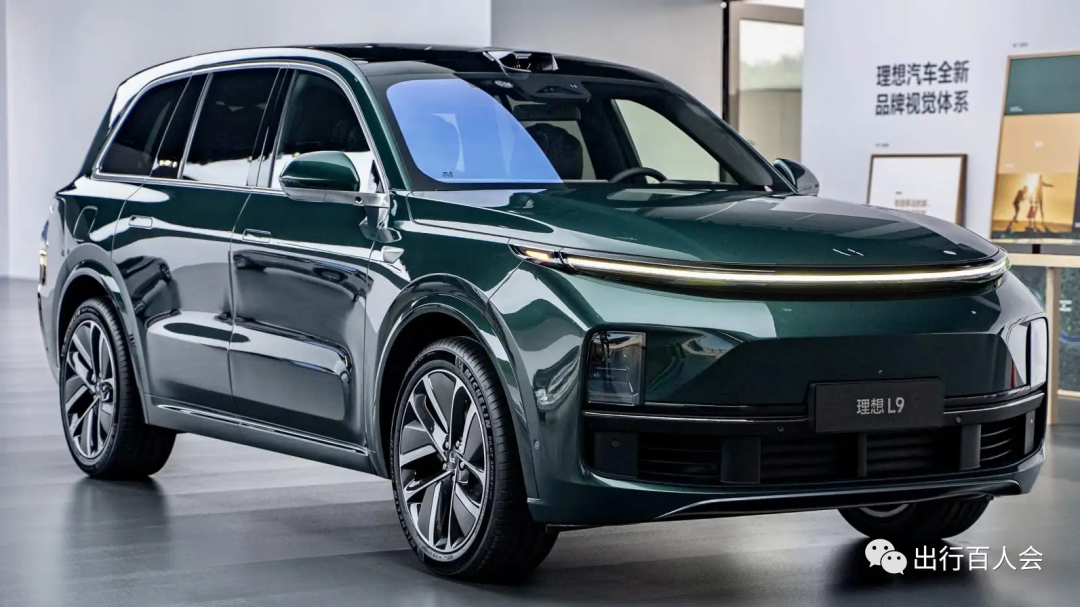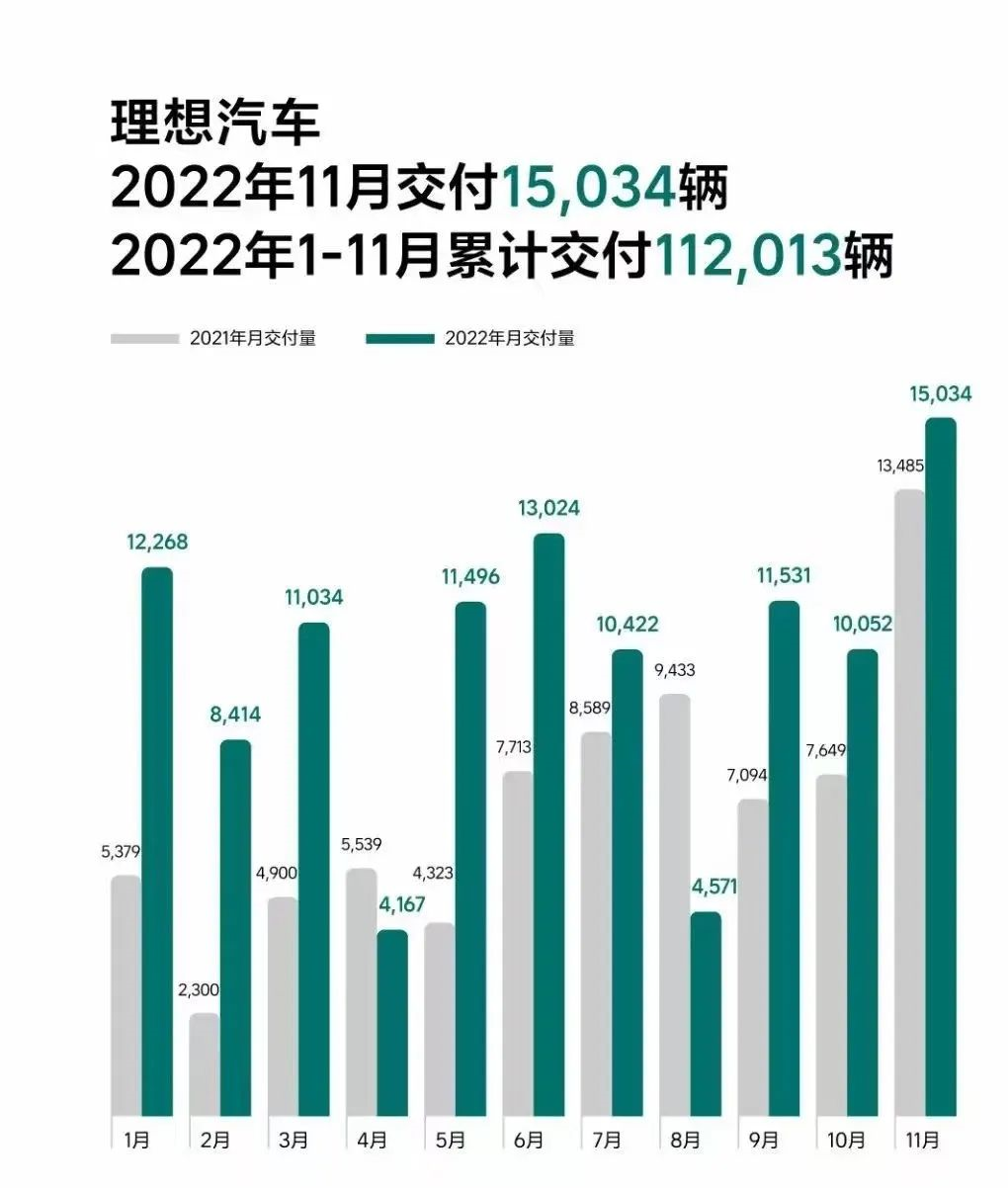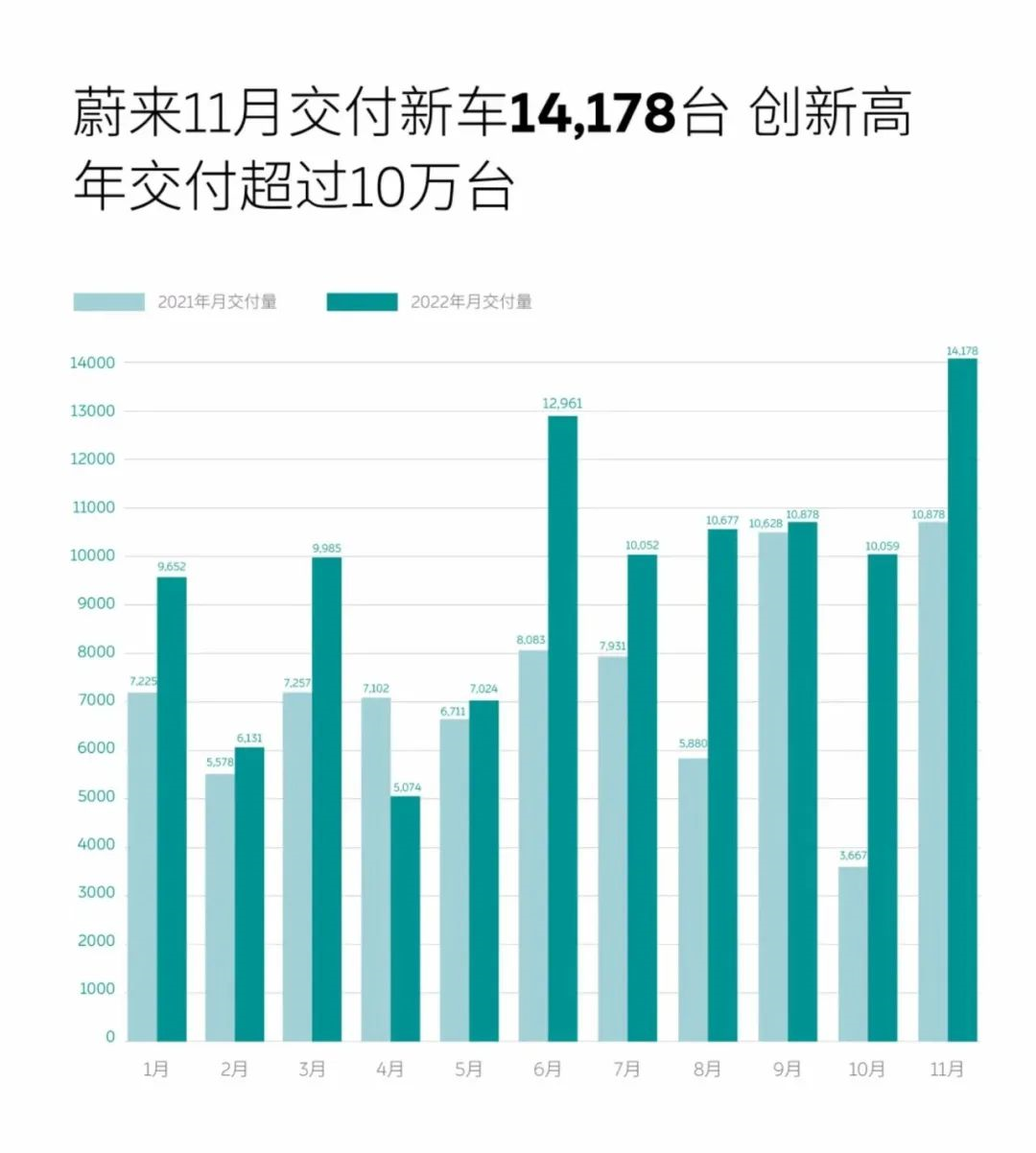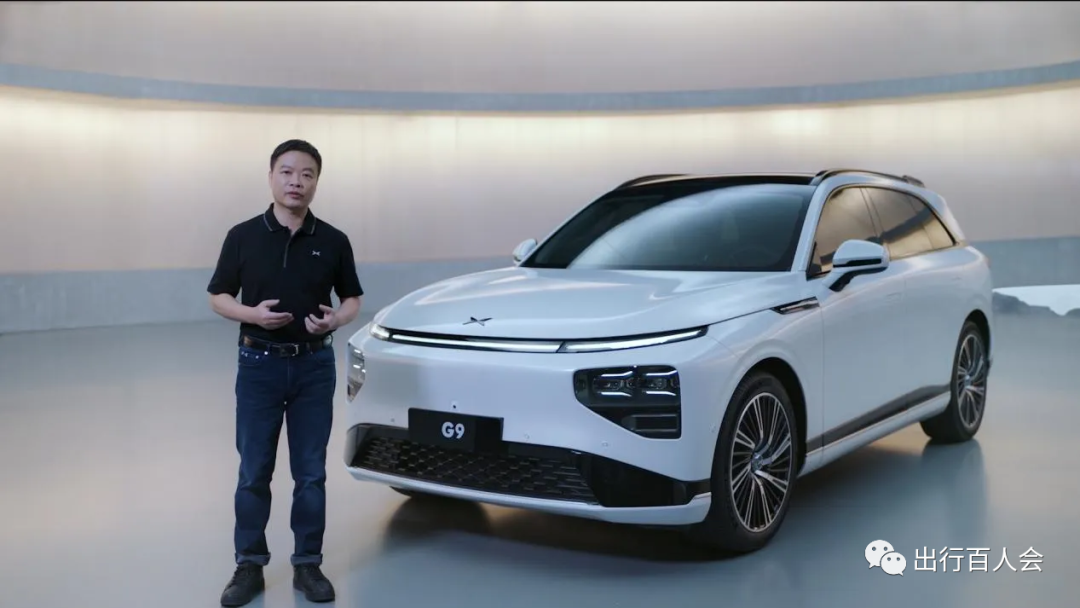Article by Roomy
Edited by Zhou Changxian
At the end of 2022, the previous three “struggling” entrepreneurs, Li Bin, Li Xiang, and He XPeng, feel that it is time to come together and discuss the topic of how to innovate in the field of new energy vehicles led by “Wei Xiaoli.” In the past few years, they have had some ups and downs.
In 2019, they all experienced their first moment of despair – they couldn’t obtain funding and couldn’t produce cars. All traditional car companies didn’t take them seriously, claiming that “mass production is the true capability, which they couldn’t achieve yet.”
2020 brought a dramatic turn of events. The three men took a photo together with the caption “three struggling men, remembering hardship and innovation.” Afterward, the story developed unexpectedly.
In the same year, Li Bin from NIO became the leader of the new energy vehicle market – a stark contrast to the “most miserable person of 2019.” He XPeng has transformed XPeng Motors into a representative of intelligent technology, and the strong sales of Li ONE have allowed Li Xiang to prove that the “extended-range” route is feasible.
At the same time, the countdown for traditional gasoline cars to exit the market began, and some traditional giants were forced to launch various new energy strategies to avoid falling behind. When asked about Li Bin and Wei Xiaoli’s rapid success, they can’t help but feel nervous.
Wei Xiaoli, with the dream of overcoming obstacles, walked passionately all the way to 2021 with ease. XPeng Motors replaced its brand logo, and He XPeng said on stage that “I am glad that XPeng Motors did not give up when the darkest moments of the electric car industry arrived in 2019.” However, despite the climbing sales, XPeng faced growing signs of disfavor in the capital markets.
And what about NIO? The company’s pride in user culture has been somewhat stressful, and a series of chip shortages and production shutdowns caused its sales and stock prices to fall. On the night of its second-quarter financial report, Li Bin had to cancel his planned trip to the United States to avoid panic.
However, Li Xiang’s company, Ideanomics Inc. has been quietly raking in profits. According to He XPeng, Ideanomics Inc. had a much easier year in 2021, which was challenging for both Li Bin and He XPeng. The RMB 10 million sales threshold for the Li ONE model allowed Ideanomics Inc. to smoothly reach its goals.
This year, GAC Aion, Geely Jikua, and SAIC IM have all stepped onto the stage, ready to show their strength. When will they go into mass production? When will they be delivered? Do they understand the current user group? These types of questions have made the ears calloused, but the leaders of various car companies have changed out of their suits that they have worn for many years and patiently answered them.
The answers were not clear at that time, but the sales data from November this year has already made the answers very clear. The statement “the new forces of the group have a mature system endorsement. Once they turn over, they will quickly establish an advantage” has become a reality.
The sandwiching of competitors, high R&D costs, and other such issues have forced NIO and XPeng into certain predicaments. However, Li Xiang remains the “comfortable person” in the mouth of XPeng.
With the above as background, we briefly describe the changes that NIO founder William Li has gone through in the past three years, from a “hardworking but struggling” man in the photo to now only one who is “living comfortably.” What differences have occurred in between that have caused William Li to be so “different”?
Li Xiang is happy, Li Bin and XPeng are worried
A few days ago, XPeng said that he was experiencing his second era of despair. The first time was because he couldn’t get the funding he needed, and this time it was because sales weren’t going up.
For Li Bin, his era of despair came a little earlier than XPeng’s. In the first half of this year, there were many problems that hit Li Bin directly, such as the need to update product capabilities, supply chain difficulties, and insufficient production capacity. Whether or not he feels dizzy is not known, but it is definitely painful.
In the same WeChat group, Li Xiang set a new goal: “strive to achieve a monthly revenue of over 10 billion yuan by 2022”. With this, Li Xiang needs to tell a new story to the capital market. However, Li Bin and XPeng currently do not have a new story to tell.
Recently, the Q3 financial report and sales data for November have made the situation of the three giants of NIO, XPeng, and Li Xiang more distinct.
The data shows that NIO loses 130,000 yuan per car sold, and XPeng is not doing much better with a loss of 80,000 yuan per car sold. Ideal is slightly better, losing about 20,000 yuan per car sold, but users feel that they have “fallen behind” because they only lost 10,000 yuan per car sold last year.
In the Q3 financial report conference call, Li Bin stated his dream, which is “slightly smaller” than Li Xiang’s. In the case of a quarterly loss of 4.1 billion yuan for NIO, Li Bin said, “I hope to achieve a balance of income and expenditure in 2024.”
However, some people believe that Li Bin’s confidence in achieving profitability by 2024 is insufficient. From the perspective of vehicle cost, marketing cost, and market competition, it seems that achieving profitability by 2024 is a “far-reaching” goal.

Of course, some people criticize Li Xiang for his idealistic thinking. After all, ideals are not always plain sailing. The company has been losing money for seven consecutive years. How can they achieve a “monthly income of over 10 billion yuan”? Li Xiang places his bet on the Ideal L9 and Ideal L8, especially the L9, which is seen as the chip to achieve profitability.
On December 1st, many places experienced heavy snow, but the circle of friends was lively, sharing a report of the November sales volume. It is no surprise that Li Xiang ranks outside the top three.
GAC Aion continues to grow, with sales of 28,765 vehicles in November. NIO ES6, with sales of 15,072 vehicles, ranked first among new automakers. Speaking of which, when NIO’s monthly sales surpassed those of Ideal, Zhang Yong, the leader, humbly said, “It’s not the little Which or the little Li, it’s the little logic.” Now he has stopped denying this statement.

Ideal ranks behind NIO, with deliveries of 15,034 vehicles, thanks in part to the Ideal L9, which has become the sales champion in the large SUV market for two consecutive months. So far, Ideal has delivered a total of 112,000 vehicles this year.
Ideal co-founder and CEO Shen Yanan said: “With the delivery of Ideal L8 and L9, we have consolidated Ideal’s market position in the 300,000-500,000 yuan price range.” This is interesting, as this is the product territory that NIO was supposed to be focusing on.
Ideal is delighted, but NIO and XPeng are a bit “worried,” although to varying degrees.
After all, NIO’s delivery performance is rebounding, with a record delivery of 14,178 vehicles in November. However, due to scale effects, NIO’s losses continued to increase, and it is possible that they will regress to the “desperation when they had no money” of 2019.
Li Bin said NIO is not qualified to wait and will not shrink. This year is a year of alternating old and new products for NIO. NIO has delivered the new models of ET7, ET5, and ES7, and handed over the baton to the old models of ES8, ES6, and EC6. There are a total of six models on sale. Although there have been some chaos in the process of product transition, he said “this is normal.”
NIO’s product matrix can be described as “rich”, but there is no model like Tesla Model Y, which is Li Bin’s “pain point.” As we all know, in order for NIO to achieve profitability, it needs a model that can bear the dual tasks of sales and profitability, in addition to the need for sales scale.
Li Bin praised, “ET5 has become the best-selling model in NIO’s history”, but the reality is always cruel. The performance of ET5 did not live up to Li Bin’s expectations.

Li Bin is waiting for the arrival of a new brand, and the market is also waiting for the second brand “Alpine” and the third brand “Himalayas” to enter the market, allowing Li Bin to have the funds to realize the new business layout of “batteries, chips, and phones” that cannot be stopped.
Li Bin said, “If you fall into the second camp in the finals and want to catch up with the first camp, it is basically impossible. You can only be a person who is barely alive in the second camp.” This is Li Bin’s voice, but it also touches the heart of He XPeng.

What worries He XPeng is that the brothers who used to take pictures together all had sales exceeding 10,000 in November, but XPeng only had less than half of the sales. The sales volume in November was only 5811 vehicles, although the cumulative delivery exceeded 100,000 vehicles. For He XPeng, this result is not satisfactory.
Because at the beginning of the year, He XPeng set a goal of “guaranteeing 250,000 vehicles and striving for 300,000 vehicles”. The gap between these two numbers, as well as the ups and downs of the XiaoPeng G9, which He XPeng regarded as the “best car under 500,000 yuan,” has made even the “CEO who can sleep the best” unable to rest easy.# 将下方的 Markdown 中文文本翻译成英文 Markdown 文本
何小鹏责问高管,「有没有做过G9的产品调研,有没有问过用户需求」。曾经敢于直撄特斯拉智能科技锋芒的小鹏,走到了一个危险的边缘。如果把同质化的智能驾驶拿掉,小鹏的标签还有什么?
这是一个值得何小鹏深思的问题。
当一个「老好人」,还是「暴君」?
在《晚点AUTO》的报道中,李斌说,汽车行业是马拉松,是泥泞路上的马拉松,所有人都没跑多远,最关键是一直在跑。
「我们才跑了 2、3 千米,什么都不是。特斯拉可能跑了一两万米,那又怎样?这是没有尽头的竞争,一直在跑才是最关键的,跑好自己的节奏,不要太在乎一个月、一个季度的得失。」
说这话,李斌也是因为熬过了上半年的交付持续下滑,新旧产品的波动期。但何小鹏,仍旧处于这种漩涡中,一时间,暂无靠岸之法。
虽然,李斌也不见得底气很足,但他比何小鹏安心的一点是,稳定的团队,和契合的搭档。
「如果战略清晰,那就大胆投入。」李斌说,在挑战面前,他一直不提倡过于忠于初心,而是要更大胆。秦力洪评价李斌,是一个善于谋篇布局的战略家。如果说,李斌是掌握方向,那么搭档秦力洪则是掌握平衡。

在蔚来,高管会经常参与关键的产品开发节点。搭档之间的契合,以及能够时刻在激进和谨慎中,保持着恰当的平衡,是非常重要的。
目前蔚来有近 3 万员工,李斌说,再难,现在也不会裁减团队,他的理念是用 100% 的人完成 150% 的工作,而不是 80% 的人完成 100% 的工作。「要靠我们现有这些人把事情搞成。」
或许,正因如此,蔚来才能从近一年的变革阵痛中走出来,实现连续三个月的月销过万辆。
那么,何小鹏能做到这个平衡吗?其实,很难。
Translation
He XPeng doesn’t have the decisive mindset, like Li Bin, in the midst of radical changes. XPeng’s early employees evaluated him as being “too nice” and “not punishing subordinates.”
This was necessary in the early days of the startup when things were a mess. However, as the sales grew and the team expanded, the “nice guy” decision-makers would become prone to internal factionalism due to the lack of a strict responsibility system.
This is what has happened to XPeng Motors today. The GAC and UC factions have emerged due to different backgrounds. The former “classmate culture” has evolved into a “grab-credit culture,” driven by their own departmental KPI assessments.
Moreover, He XPeng’s “distractedness” has exacerbated the factionalism. Unlike Li Bin and Li Xiang, who focus on EV and car production, XPeng’s mind is scattered among flying cars, four-legged robots, and other innovations, leaving him with much less involvement in car product development discussions.
Players being responsible for multiple products in different departments has led to fragmented teams and power struggles, which XPeng is well aware of. He once commented that he had thought about this matter and that he had changed as the team grew, adding that he was “no longer a good man; he often scolded people.”
However, this statement doesn’t hit his sore spot. Given that his lack of active involvement in certain businesses has led to a lot of investments being wasted.
The spark that ignited the explosive tensions in the factions was expected to arrive. XPeng G9’s pricing controversy forced XPeng to refocus his sights on cars, despite his distractions.
From the reveal to launch, there was a lack of clear survey and perception of user and market preferences. Moreover, it was even seen as a copy of the Ideal L9, which was heavily damaging for XPeng, who focuses on intelligent technology.
Under these circumstances, He XPeng decided to prioritize two issues: supply chain and organizational structure.

Using the words of Mary Barra, CEO of General Motors, “If you don’t understand the industry chain, or even the situation of your own company, you can’t communicate effectively with others.”
The matter of the supply chain cannot be resolved overnight. However, the adjustment of personnel structure is imminent.
He XPeng has made changes to the organizational structure. After the adjustment, XPeng formed five committees, including strategic planning, product planning, technology planning, and production and sales balance. He XPeng served as the director of three of the committees and was more directly involved in specific affairs. Co-founder and president Xia Heng resigned as executive director of the company but remained as the company’s president.
However, there are still many who are skeptical of this degree of adjustment. Since its inception, He XPeng has been comparing with Musk with “smart driving,” but there is still some gap between He XPeng and Musk’s methods.
After taking over Tesla, Musk started to remove the founding team, and Tesla gradually got on the right track. He XPeng commented on this, “I don’t think this is a very good case, but he succeeded.”
Of course, it is not necessary to monopolize power like Musk to demonstrate strength. Xia Heng’s resignation as executive director can be seen as the first blow that He XPeng struck at the founder’s power. Whether it can form a balance between Li Bin and Qin Lihong is unknown.
However, Wang Xing, the founder of Meituan, is not optimistic about XPeng’s future. He predicts that in the future high-end market in China, it will not be BBA, but Li Weihua. A few years ago, Wang Xing believed that XPeng was one of the three new forces that could win in the end.
Wang Xing, you have changed your mind.
However, he has always held a highly consistent view on idealism. Because the cultural value of Ideals is very unified: growth, mastery of initiative, and results-oriented. Therefore, Ideal Auto has two major advantages: products and efficiency.
Li Xiang, the product manager, participates in a large number of product review meetings and often directly rejects unsatisfactory designs, hence being known as the “product tyrant.” His goal is to pursue more certain functionality in products.
This is related to Li Xiang’s persistent personality and entrepreneurial experience. In Li Xiang’s three entrepreneurship experiences, management concepts have evolved from focusing on competition to focusing on users to now focusing on organizational structure, and attach great importance to efficiency in operations.
 The combination of these two points is also the deciding factor for the ideal model to break the 100,000 units sales mark. In addition, the Ideal L8 and Ideal L9 joining hands will break into higher price segments.
The combination of these two points is also the deciding factor for the ideal model to break the 100,000 units sales mark. In addition, the Ideal L8 and Ideal L9 joining hands will break into higher price segments.
In fact, Ideal has a concept that is worth learning from XPeng Motors. “Whoever makes the decision, takes responsibility”.
Li Xiang said that the results are hard to imagine as being good.
This article is a translation by ChatGPT of a Chinese report from 42HOW. If you have any questions about it, please email bd@42how.com.
